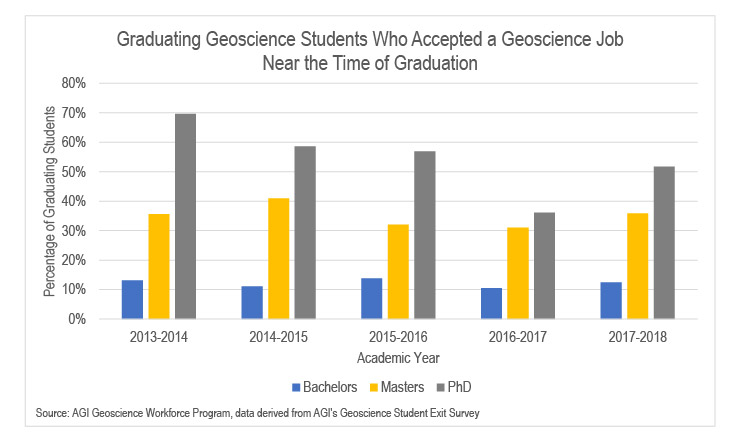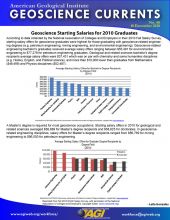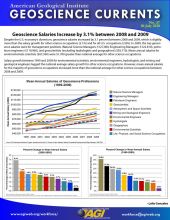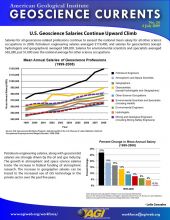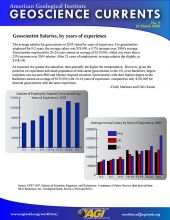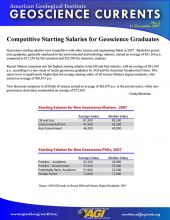Between 2013 and 2018 the percentage of graduating students accepting a job within the geosciences fluctuated with changes in the job market and the employment-seeking trends of graduating students. During the 2016-2017 academic year, the percentage of students at all degree levels securing employment in the geosciences near the time of graduation hit its lowest point with 10% of bachelor's graduates, 31% of master's graduates, and 36% of doctoral graduates securing geoscience positions near the time of graduation. Much of this can be traced to slower hiring within the energy and environmental and engineering services sectors where a large percentage of master's and bachelor's graduates typically find jobs. For doctoral graduates, there was a decline in the percentage of graduates securing employment within the academic sector, which is a primary employer of geoscience doctorate recipients. In the 2017-2018 academic year, however, hiring rebounded as 13% of bachelor's graduates, 36% of master's graduates, and 52% of doctoral graduates secured geoscience positions near the time of graduation.
Where graduating students secure employment directly impacts starting salary trends. Between 2013 and 2018, 61% of geoscience bachelor's graduates who secured jobs within the geoscience profession near the time of graduation reported starting salaries of $40,000 or less. These graduates predominantly accepted positions within the academic sector, environmental and engineering services, federal government, and energy sector. Twenty-nine percent of geoscience bachelor's graduates reported salaries between $40,000 and $60,000, and most of these graduates accepted jobs within the and engineering services and energy sectors. Ten percent of geoscience bachelor's graduates reported salaries of $60,000 or more, and they predominantly accepted jobs within the energy sector.
Between 2013 and 2018, 15% of master's graduates reported starting salaries of $40,000 or less, reflecting employment in the academic, environmental and engineering services, state and local government, and energy sectors. Starting salaries between $40,000 and $60,000 are primarily driven by employment in the environmental and engineering services, and to a lesser extent within the federal government and energy sectors. Starting salaries between $60,000 and $80,000 are primarily driven by employment in the energy and resource sector, and salaries above $80,000 reflect employment in the energy sector.
Geoscience doctoral graduates starting salary trends are reflective of employment within the academic sector, with 75% of doctoral graduates reporting starting salaries between $40,000 and $80,000. Similar to master's graduates, starting salaries above $80,000 for doctoral graduates reflect employment in the energy and resource sectors.



